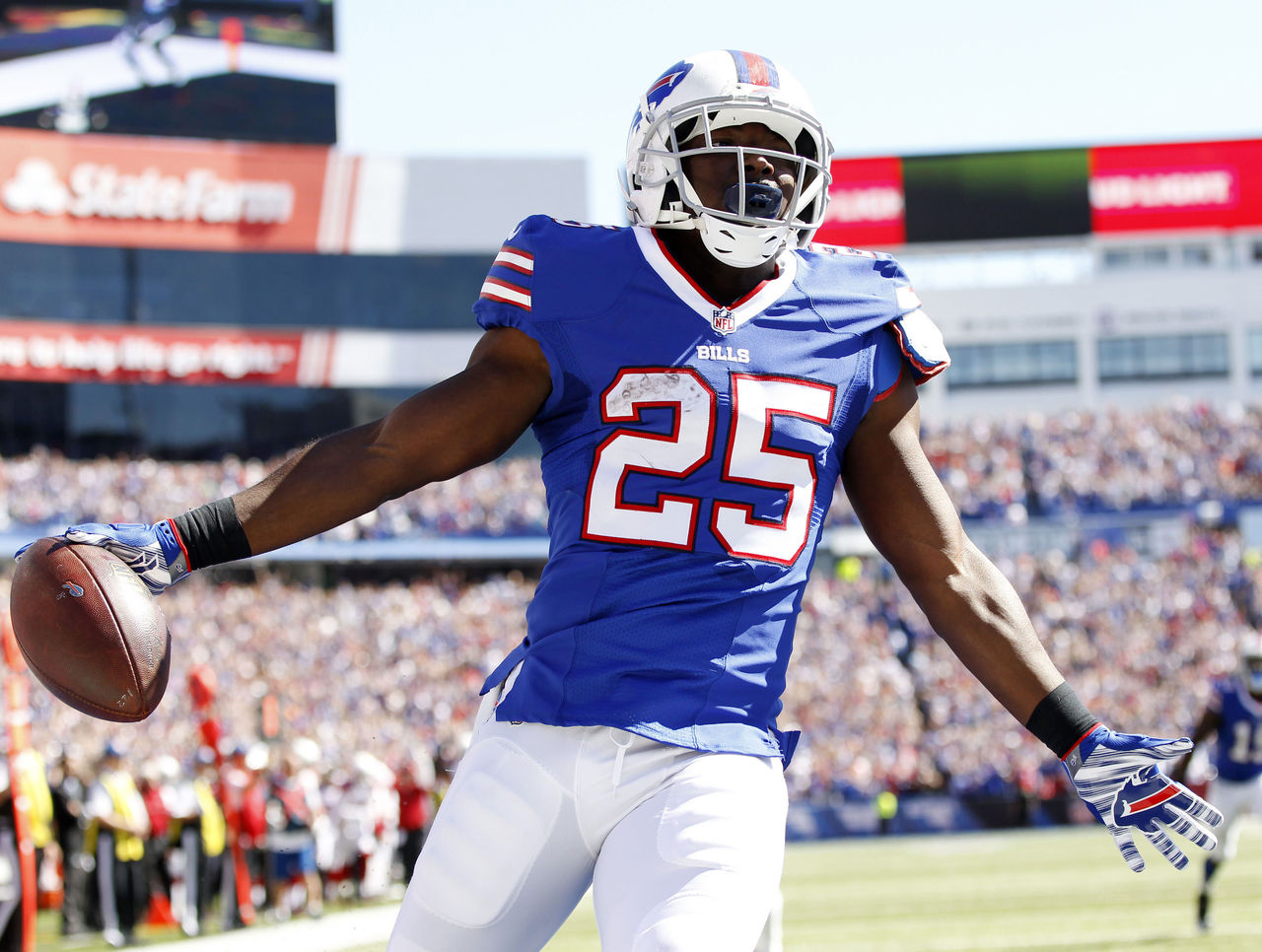How the Bills can remain competitive while rebuilding
The Buffalo Bills hijacked the banal, monotonous tenor of the preseason by making a pair of seismic trades on Friday, sending wide receiver Sammy Watkins to the Los Angeles Rams and shipping Ronald Darby to the Philadelphia Eagles. During a frenetic half-hour window, the Bills effectively declared their intentions for the upcoming season, while mapping their long-term plans.
Buffalo enters the 2017 campaign with a new regime that's hell-bent on eroding the last vestiges of the previous administration, and is focused on changing the trajectory of the NFL's most downtrodden franchise while implementing a long-term strategy to finally spell sustained success.
Here's how the Bills can remain competitive while accelerating their rebuild.
A new beginning
While operating at a gradual pace that only a perpetually disorganized franchise like the Bills could muster, the team slowly ousted key figures from the Rex Ryan era. Buffalo installed Sean McDermott as its next head coach on Jan. 11, unceremoniously fired general manager Doug Whaley after the 2017 draft, and then hired McDermott confidante Brandon Beane as Whaley's replacement. The quiet, calculated approach laid out by McDermott and Beane has been in diametric opposition to Ryan's tempestuous - and often empty - rhetoric, and now the Bills can march forward with a new regime that's fully responsible.
McDermott and Beane are intent on running the franchise the way they envisioned, and in doing so jettisoned the crown jewel of Whaley's tenure, Watkins, to Los Angeles. The idea of Watkins and his tantalizing potential outweighs the actual player at this juncture of his career. Deterred by lingering foot injuries, he hasn't played a full season since his rookie campaign in 2014, participating in just 21 games over the past two years. The decision to trade Watkins shouldn't have been too jarring after the Bills initially declined to extend his fifth-year option this spring.
Watkins could develop into a superstar with the Rams and few would blink at the prospect, but it's more likely than not he'll be hampered by his injury issues for the duration of his career. By effectively trading Watkins for Jordan Matthews*, the Bills acquired a capable receiver who's a year older and can provide a very reasonable facsimile of the former's production. Matthews unfortunately suffered a chip fracture in his sternum on Sunday, but he's not a perpetual injury risk like Watkins.
Wins above replacement are nearly impossible to determine in football because of the different functions of each position, but it's hard to imagine the Bills' ceiling becoming notably worse as a result of the Watkins deal.
*Matthews was acquired by the Bills in exchange for Darby.
Maintain a run-oriented offense

Buffalo led the NFL in rushing over the past two seasons, not coincidentally linked to LeSean McCoy's arrival in March 2015. McCoy and Jonathan Williams will now be aided by new fullback signings Mike Tolbert and Patrick DiMarco, the latter of whom graded as the best run-blocker at his position in the NFL last year, according to Pro Football Focus. The Bills can quietly plan for the future while operating a run-heavy scheme that's been paramount to their identity over the past two years. Tolbert was groomed by the Panthers over the past five seasons and though he was signed under Whaley's watch, there's no way the Bills would've added him without McDermott's tacit approval.
Tyrod Taylor can elect to opt out of his contract after the 2018 season and the Bills will need to make another fundamental decision that informs their future this winter. As currently presented, the Bills aren't bad enough to outright tank like the New York Jets, Cleveland Browns, and San Francisco 49ers, so Taylor can keep the team afloat while management further articulates their long-term vision. "Blowing it up" is a concept popularized by the NBA writing community at-large, but in this case, it doesn't make sense for the Bills, who can actualize their-long term goals while remaining competitive.
Continue to stockpile and leverage assets
The final move of Whaley's tenure was acquiring a 2018 first-round selection from the Chiefs, trading 17 spots down to select the cornerback they wanted all along, Tre'Davious White. In doing so, Whaley tried to ensure that Buffalo wouldn't mortgage its future while acquiring the player that was atop its board during the pre-draft process.
After a whirlwind afternoon Friday, the Bills emerged with the aforementioned Chiefs' first-round pick, a second-round selection from the Rams, and a third-round choice from the Eagles. Los Angeles is slated to be one of the worst teams in the NFL once again, spurring a key question: Is there really a line of demarcation between a first-round pick and an early second-rounder if the Rams finish among the worst five teams in the league? In all likelihood, there isn't, and the Bills have accrued numerous assets for what's shaping up to be one of the deepest drafts - especially at quarterback - in recent memory.
HEADLINES
- Sunday Rundown: Key takeaways from Week 17's biggest games
- NFL Playoff Picture: Postseason seeds, projected draft order
- Purdy's 5 TDs help 49ers top Bears in SNF thriller to stay in mix for 1-seed
- Week 18 schedule: Steelers-Ravens on SNF for AFC North crown
- Eagles hold off Bills as Patriots clinch AFC East